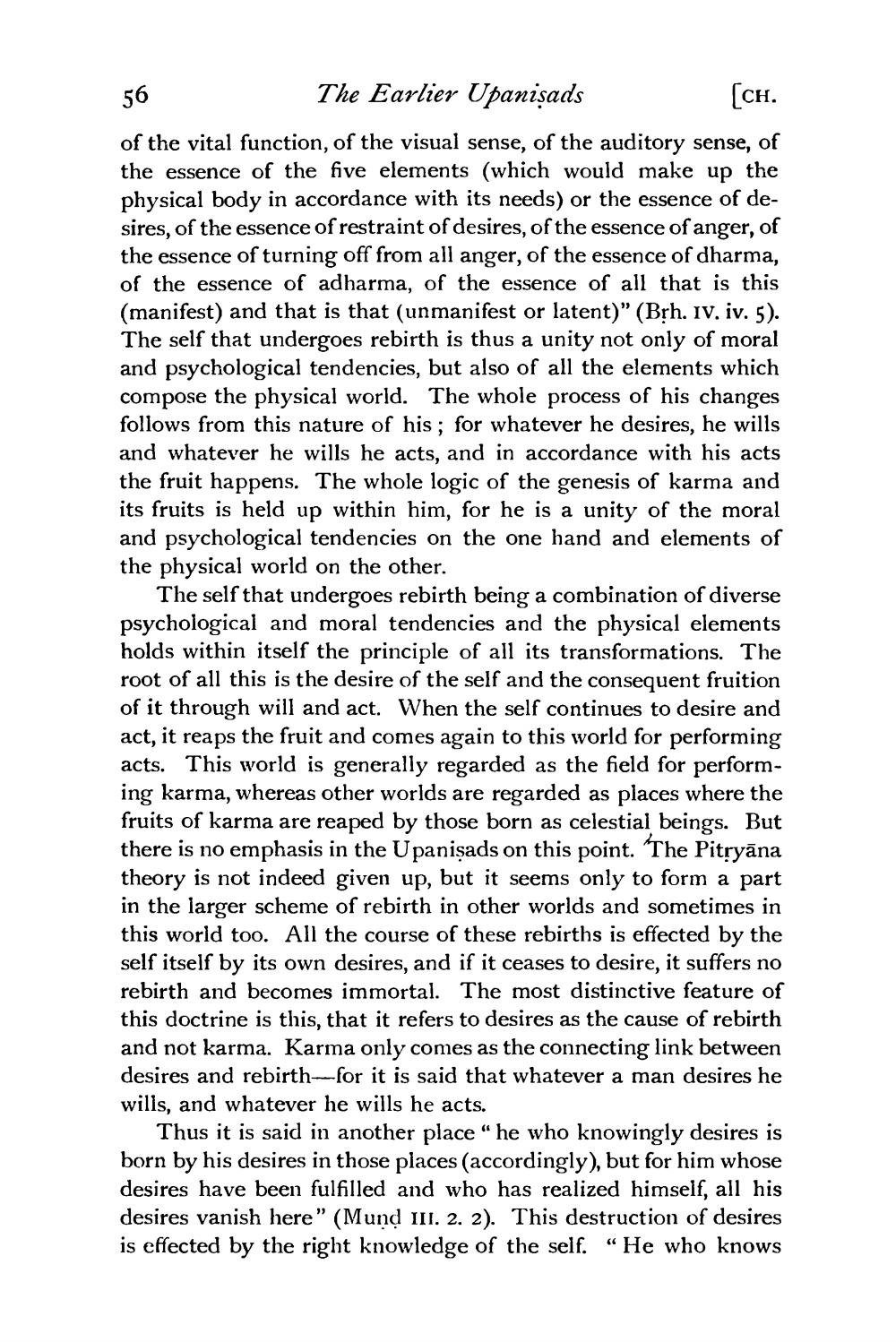________________
56
The Earlier Upanişads
[CH. of the vital function, of the visual sense, of the auditory sense, of the essence of the five elements (which would make up the physical body in accordance with its needs) or the essence of desires, of the essence of restraint of desires, of the essence of anger, of the essence of turning off from all anger, of the essence of dharma, of the essence of adharma, of the essence of all that is this (manifest) and that is that (unmanifest or latent)” (Bịh. iv. iv. 5). The self that undergoes rebirth is thus a unity not only of moral and psychological tendencies, but also of all the elements which compose the physical world. The whole process of his changes follows from this nature of his; for whatever he desires, he wills and whatever he wills he acts, and in accordance with his acts the fruit happens. The whole logic of the genesis of karma and its fruits is held up within him, for he is a unity of the moral and psychological tendencies on the one hand and elements of the physical world on the other.
The self that undergoes rebirth being a combination of diverse psychological and moral tendencies and the physical elements holds within itself the principle of all its transformations. The root of all this is the desire of the self and the consequent fruition of it through will and act. When the self continues to desire and act, it reaps the fruit and comes again to this world for performing acts. This world is generally regarded as the field for performing karma, whereas other worlds are regarded as places where the fruits of karma are reaped by those born as celestial beings. But there is no emphasis in the Upanişads on this point. "The Pitryāna theory is not indeed given up, but it seems only to form a part in the larger scheme of rebirth in other worlds and sometimes in this world too. All the course of these rebirths is effected by the self itself by its own desires, and if it ceases to desire, it suffers no rebirth and becomes immortal. The most distinctive feature of this doctrine is this, that it refers to desires as the cause of rebirth and not karma. Karma only comes as the connecting link between desires and rebirth--for it is said that whatever a man desires he wills, and whatever he wills he acts.
Thus it is said in another place "he who knowingly desires is born by his desires in those places (accordingly), but for him whose desires have been fulfilled and who has realized himself, all his desires vanish here" (Mund III. 2. 2). This destruction of desires is effected by the right knowledge of the self. “He who knows




